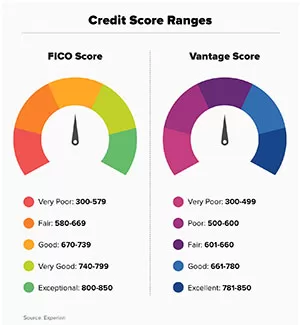How A Delaware Attorney Can Help You with Fair Credit Reporting

In addition, federal laws also require creditors to report correct information to credit agencies. If they don’t, you may be entitled to damages. Credit reports used for employment purposes must also be accurate and must not contain certain information (such as expunged criminal records or charges over seven years old). If this information is illegally reported, you may have remedies and be entitled to damages. Please click the button below to complete your Credit Reporting Case Evaluation Form.
Protect Yourself: Know Your Rights Under the Fair Credit Reporting Act (FCRA)
The Fair Credit Reporting Act (FCRA) is a law that seeks to encourage fairness, privacy, and accuracy with respect to the information contained in consumer reporting agency files, which includes not only credit bureau files, but also files at agencies that provide and sell information about consumers’ medical records, rental histories and check writing histories.
It is important for consumers to not only be aware of their rights under the FCRA but to also know how to enforce those rights. The following information is provided to educate you, as a consumer, about a few of the rights contained in the Act.
Enforcing Your Rights
The FCRA provides consumers with several rights; however, in many cases individuals do not have legal standing to enforce those rights until they file a dispute with a credit bureau and the credit bureau or creditor fails to correct the report. It is important to speak with an attorney who can help you determine if consumer agencies or, in some instances, companies or individuals who use consumer reports or provide information to reporting agencies can be held legally responsible in a federal or state court of law for any violations under the FCRA.
Your Rights
- You are entitled to know what your file contains. Consumers are permitted to request and receive all information contained in files held by a consumer reporting agency. To obtain your information, you must provide adequate and appropriate identification, which might include proof of your Social Security number.
- You have the right to request your credit score. Credit bureaus provide consumers with numerical summaries known as credit scores that will give potential creditors an idea of one’s overall credit-worthiness. You will likely be required to pay for the score; however, certain transactions may include free score information, as in the case of some mortgage transactions.
- You have the right to dispute incorrect and/or incomplete information contained in your file. Many consumers are familiar with this aspect of their rights because they’ve likely seen it noted on copies of prior credit reports. It is important for you to inform the consumer reporting agency of any and all information that is not correct or incomplete. Once you advise them of the erroneous information, the agency is required, by law, to investigate (unless they deem the dispute to be frivolous).
- Once investigated, consumer reporting agencies are required to remove or correct any incomplete, incorrect or unverified information. The agency is required, usually within 30 days, to either remove or correct the disputed information. However, if the agency concludes the information is correct, it may continue to report it.
- Your file can only be accessed by those who need to know. Anyone seeking to obtain information contained in your file must demonstrate a legitimate, valid need. Such individuals or companies seeking access may include those considering credit applications, insurers, landlords and employers.
These are only a few of the many rights that exist for consumers under the FCRA. So, now that you’ve been informed of a few of the rights contained in the Act, how do you go about enforcing your rights, and what you should do if you believe your rights have been violated?
If you believe your rights under FCRA have been violated, or if you have questions about your rights, please complete our Case Evaluation Form, or call Mary Higgins at our office 302-894-4357.
(This article is for informational purposes only and should not be relied upon for legal advice. Your case should be reviewed by an attorney to determine the proper legal advice for your situation.)
